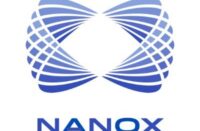LONDON, October 9, 2017 /PRNewswire/ —
Researchers from the UCL Cancer Institute and the specialist healthcare company BTG plc (LSE: BTG) have begun the first clinical trial of an experimental treatment for liver cancer using X-ray imageable microscopic beads loaded with a targeted anti-cancer drug placed directly in the liver. The trial will evaluate delivering a precisely controlled dose of vandetanib, an inhibitor of multiple tumour growth pathways, directly to the arteries feeding a liver tumour by pre-loading the drug on a radiopaque bead which can be visualised on CT scans. Although still at a very early stage of research, the development programme aims to improve current treatments for patients with primary liver cancer and metastatic Colorectal Cancer (mCRC).
The current standard of care for liver cancer patients is known as transarterial chemoembolisation, or TACE, and involves injecting beads through an artery using a microcatheter to block the tumour-feeding blood vessels, starving the tumour of oxygen and nutrients. These beads are usually loaded with a chemotherapy drug that is released over time directly at the tumour site, avoiding exposure to the rest of the body and reducing side effects. Despite advances in this procedure, liver cancer remains one of the most common causes of cancer death worldwide[i].
To improve the treatment of patients with primary liver cancer and mCRC, the beads used in the VEROnA study (vandetanib-eluting radiopaque beads in patients with resectable liver malignancies) are pre-loaded with a multi-kinase inhibitor called vandetanib. Vandetanib targets genetic alterations and cell-signalling pathways that lead to liver cancer growth, recurrence and metastasis. These pathways, including vascular endothelial growth factors (VEGF-A and C) and epidermal growth factor receptor (EGFR), stimulate new tumour blood and lymph vessel growth and aid the development of solid tumours. They may also promote spread of the cancer to other organs and inhibit the body’s own immune response to the tumour. A phase II trial of vandetanib in patients with advanced liver cancer showed some promise[ii], and provided a strong rationale for the loco-regional delivery of this drug.
Professor Ricky Sharma, Chair of Radiation Oncology at University College London and the study’s primary investigator, said: “The incidence and mortality rates for primary liver cancer continue to climb and it is vital that we explore new treatment approaches. This research is exciting because it is the first time we have been able to pre-load a targeted cancer drug on to an imageable bead, to deliver the targeted drug in high doses to the cancer and see exactly how well the beads reach the target we have defined. By refining the treatment using information from this clinical trial, we may be able to develop a liver-directed treatment as a superior alternative to the rather poorly tolerated drug treatments we currently offer patients with this type of cancer.”
The vandetanib-eluting bead was developed in collaboration with Centre Hospitalier Universitaire Vaudois (CHUV), Lausanne, Switzerland and Dr. Alban Denys, professor at the department of medical radiology at CHUV. Vandetanib-eluting beads use BTG’s recently developed radiopaque bead platform.[iii] Beads that can be visualised with CT or fluoroscopic imaging offer the advantage of providing visible confirmation of bead location during and after the embolisation procedure, enabling real-time adjustments to optimise patient treatment[iv].
Melanie Lee, Chief Scientific Officer at BTG said: “As leaders in Interventional Oncology, we are continuing to pursue better solutions for patients through innovation. Our suite of products are used to treat different stage cancers and they are delivered into the cancer tumour in a very targeted way, an approach called loco-regional therapy. This programme is at a very early stage of research, but testing vandetanib-eluting beads in man is an exciting milestone. Bringing to market the first embolic beads visible under X-ray imaging has enabled increased control and precision during treatment, and adding a targeted anti-cancer agent we may be able to offer a new option for hard to treat cancers in the liver.”
The VEROnA study is sponsored by BTG and supported by the Cancer Research UK Experimental Cancer Medicines Centre and the UCL Cancer Institute and the National Institute for Health Research University College London Hospitals Biomedical Research Centre. Patients with primary liver cancer or mCRC who meet the eligibility criteria will be offered participation in the clinical trial at University College London Hospitals NHS Foundation Trust and the Royal Free Hospital NHS Foundation Trust. Patients suitable for the VEROnA study are those scheduled to have their liver tumours removed surgically. By studying the resected tissue in great detail, and comparing it to the scans performed before the operation, researchers will be able to assess exactly where the vandetanib-eluting beads have been deposited in and around the tumours, and how much drug has been delivered to the target. In this way, the VEROnA “window of opportunity” clinical trial will assess the safety and tolerability of the new treatment and the potential it offers for treating liver cancer.
About Liver Cancer:
Primary liver cancer occurs when liver cells become abnormal and grow uncontrollably, forming a tumour. The most common form of primary liver cancer is called hepatocellular carcinoma (HCC). Liver cancer is the second leading cause of cancer deaths in the world[v], and one of the most challenging to treat. Each year, more than 700,000 patients worldwide are diagnosed with liver cancer.[vi] Long-term infection with the hepatitis B or hepatitis C virus, which are more prevalent in Asian countries, are a common cause of cirrhosis and liver cancer. In developed countries, increasing prevalence of obesity in the general population and alcoholic liver disease account for the rising incidence of HCC.
The liver, which continuously filters blood circulating through the body, is also susceptible to “secondary” cancers, caused when tumours in other organs such as the colon, rectum, breast, head or neck have spread to the liver. These tumours are also known as liver metastases. The liver is the most common site of metastasis in patients with CRC. Approximately 50% of CRC patients will develop liver metastases during the course of the disease[vii].
About UCL
UCL (University College London) was founded in 1826. We were the first English university established after Oxford and Cambridge, the first to open up university education to those previously excluded from it, and the first to provide systematic teaching of law, architecture and medicine. We are among the world’s top universities, as reflected by performance in a range of international rankings and tables. UCL currently has over 39,000 students from 150 countries and over 12,500 staff. Our annual income is more than £1 billion
http://www.ucl.ac.uk | Follow us on Twitter @uclnews | Watch our YouTube channel YouTube.com/UCLTV
About UCL Cancer Institute
The UCL Cancer Institute is a £40 million investment in central London based at University College London (UCL), one of the world’s top universities and a founding member of the Crick Institute. UCL Cancer Institute draws together over 300 scientists working together to develop world-class basic and translational cancer research.
http://www.ucl.ac.uk/cancer | Follow us on Twitter @uclcancer
About the National Institute for Health Research
The National Institute for Health Research (NIHR): improving the health and wealth of the nation through research.
Established by the Department of Health, the NIHR:
- funds high quality research to improve health
- trains and supports health researchers
- provides world-class research facilities
- works with the life sciences industry and charities to benefit all
- involves patients and the public at every step
For further information, visit the NIHR website (http://www.nihr.ac.uk).
About BTG
BTG is a global specialist healthcare company bringing to market innovative products in specialist areas of medicine to better serve doctors and their patients. We have a portfolio of Interventional Medicine products to advance the treatment of cancer, severe emphysema, severe blood clots and varicose veins, and Specialty Pharmaceuticals that help patients overexposed to certain medications or toxins. Inspired by patient and physician needs, BTG is investing to expand its portfolio to address some of today’s most complex healthcare challenges.
To learn more about BTG, please visit: btgplc.com.
i. Ferlay, J., Soerjomataram, I., Dikshit, R., Eser, S., Mathers, C., Rebelo, M., Parkin, D. M., Forman, D. and Bray, F. (2015), Cancer incidence and mortality worldwide: Sources, methods and major patterns in GLOBOCAN 2012. Int. J. Cancer, 136: E359-E386. doi:10.1002/ijc.29210.
ii. C. Hsu, et al. Vandetanib in patients with inoperable hepatocellular carcinoma: a phase II, randomized, double-blind, placebo-controlled study. J. Hepatol., 56 (5) (2012), pp. 1097-1103
iii. Preparation and Characterisation of Vandetanib-eluting Radiopaque Beads for Locoregional Treatment of Hepatic Malignancies. Hagan, A., Phillips, G.J., Lloyd, A.W., Czuczman, P., Lewis, A.L., Eur. J. Pharm. Sci., 101, 22-30, 2017.
iv. First Human Experience with Directly Image-able Iodinated Embolization Microbeads. Levy, E.B., Krishnasamy, V.P., Lewis, A.L., Willis, S., Macfarlane, C., Anderson, V., van der Bom, I.M., Radaelli, A., Dreher, M.R., Sharma, K.V., Negussie, A., Mikhail, A., Geschwind, J.H., Wood, B.J., Cardiovasc. Intervent. Radiol., 39(8), 1177-86, 2016.
v. World Health Organization (WHO). Cancer factsheet. Available at: http://www.who.int/mediacentre/factsheets/fs297/en/ . Last accessed 6 March, 2017.
vi. American Cancer Society. What are the key statistics about liver cancer?. Available at: http://www.cancer.org/cancer/livercancer/detailedguide/liver-cancer-what-is-key-statistics . Last accessed 6 March, 2017.
vii. Nicolay NH, Berry DP, Sharma RA. Liver metastases from colorectal cancer: role of radio-embolization with systemic therapy. Nature Rev Clin Oncol 2009, 6: 687-697.
For further information contact:
BTG
Chris Sampson, Corporate Communications Director
+44-20-7575-1595; Mobile: +44-7773-251-178
Ben Atwell/Simon Conway, FTI Consulting
+44(0)20-3727-1000
UCL Cancer Institute
Chris Lane, Media Relations Manager
+44(0)20-3108-9222 Mobile: +44(0)7717-728-648
SOURCE BTG Plc






